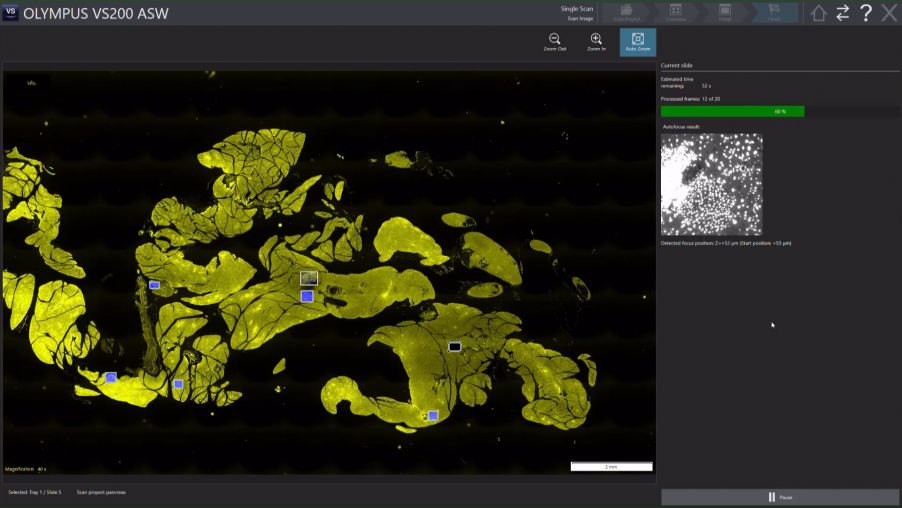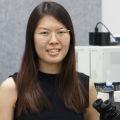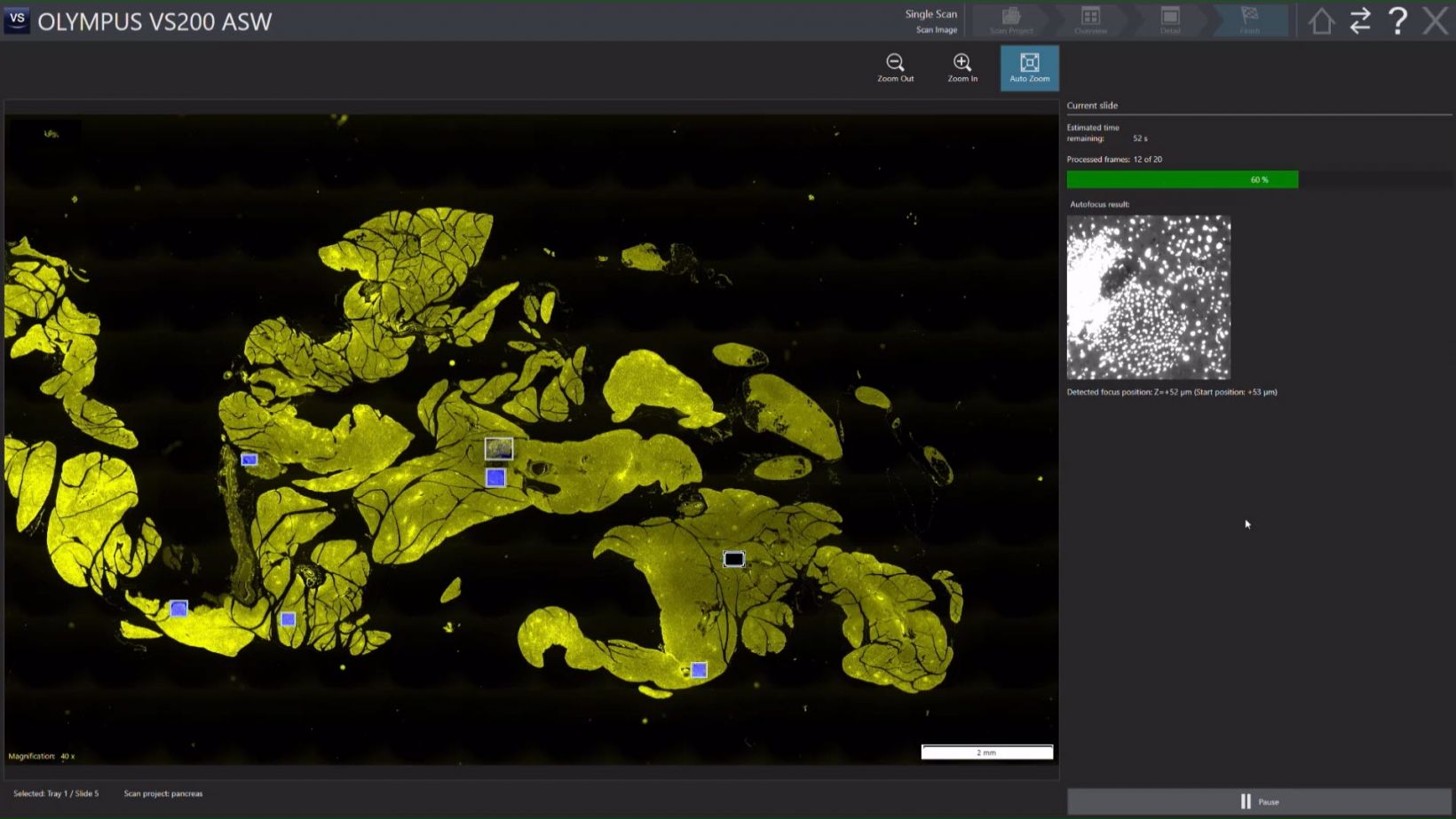Implementing TruAI™ deep-learning technology advances the automation of the SLIDEVIEW™ VS200 research digital slide scanner so that image acquisition is more efficient, and much less effort is required. Available with version 3.4 of the VS200 operating software, TruAI detection can improve your sample detection accuracy with one click.
Improve Automated Sample Detection Accuracy
The algorithms of conventional scanning systems that calculate the sample mask provide good results on high-contrast and strongly stained samples. However, they often generate inaccurate results for challenging samples, such as those that are unstained or faintly stained. Prepared biological slides intrinsically present some variability (for example, different color intensities), which can also impact the outcome of automate sample detection.
Watch this video to see the difference between generic and artificial-intelligence (AI) automated detection:
With a properly trained neural network (NN), TruAI deep-learning technology generates sample masks with high accuracy, which can remove entirely the need to make manual adjustments before you begin image acquisition. Training the NN overcomes issues with challenging samples and difficult-to-detect objects of interest. With TruAI mode, you can even selectively scan subareas of the sample based on morphological appearance.
See how AI-driven sample detection can increase accuracy and ease your workflow:
AI Optimization of Your Slide Scanning Workflow
In the video, pancreatic islets were the objects targeted for automatic detection. Your custom-trained neural network can detect whatever objects you’re targeting.
When you choose to use TruAI deep-learning technology for your automated slide scanning process, your workflow benefits in several ways:
- Improves efficiency and flexibility—The straightforward software interface is easy to set up and operate. You can easily upload your trained NN and apply it with the click of a button.
- Reduces the volume of data acquired—TruAI automated detection and, to a greater extent, selective scanning avoids the acquisition of large volumes of data containing areas that are of no interest to you or “out of sample” areas. This helps optimize data management, including storage, uploading, and sharing images.
- Increases the process autonomy—The accuracy of the AI-based detection reduces the need for intervention. You have the option to validate the sample mask before scanning, but you can also skip this step and acquire the complete image in one go without checking. This autonomy enables you to optimize your time with unsupervised slide scanning and overnight runs.
How to Pretrain the Neural Network
There are a few options to pretrain your customized neural network. You can train the NN using the optional VS200-Desktop software equipped with the Detect and Deep Neural Network module, or you can import an NN that was trained on compatible software such as cellSens™ software. With the latest update to the VS200 system (version 3.4), you can also provide the labels for training using our free OlyVIA™ software. This enables more colleagues or students to contribute to augmenting the NN’s training data, which can further increase the accuracy of the outcome.
To take full advantage of the TruAI automatic detection, update your VS200 system to version 3.4 today at olympus-lifescience.com/support/downloads under Research Slide Scanner.
Related Content
5 Artificial Intelligence Lessons from a Year of Life Science Research
A Video Introduction to Label-Free Nucleus Detection with TruAI Technology



